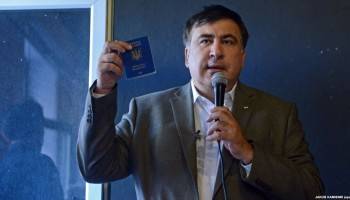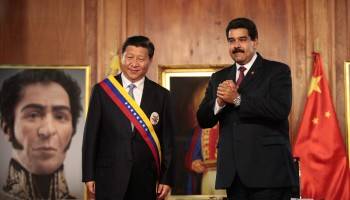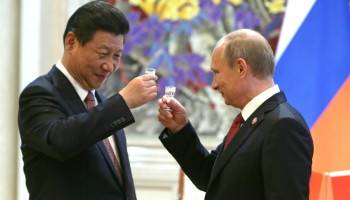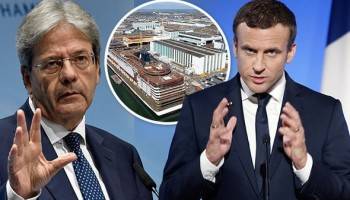Small Satellites, Big Missions
Political Consequences of Saakashvili’s Return to Ukraine
Mikheil Saakashvili, the former president of Georgia and ex-head of the Odesa Regional State Administration, returned to Ukraine on 10 September at a border crossing with Poland. He had been stripped of his Ukrainian citizenship at the end of July by Ukraine President Petro Poroshenko, supposedly for concealing in 2015 from the Ukrainian migration service that he had been under investigation in Georgia.
Saakashvili returned to Ukraine for political reasons—he wants to challenge Poroshenko’s decision in court and build his own political platform under the banners of de-oligarchisation and fighting corruption. A key role in the political attempt will be played by the Movement of New Forces, a party established by Saakashvili in late 2016.
Saakashvili’s presence changes the political balance in Ukraine. It may exacerbate the conflict between, on one side, Poroshenko, for whom the return of a political opponent is a personal defeat, and Yulia Tymoshenko and Andriy Sadovyi on the other. Both Tymoshenko and Sadovyi helped Saakashvili cross the Ukraine border, seeing it as an opportunity to weaken Poroshenko. Since Tymoshenko is likely to be the main opposition candidate in the next presidential election and has a high level of electoral support (10–12%), Poroshenko may be forced to take some actions to discredit the Batkivschyna party leader anyway. Helping Saakashvili therefore will only be a formal pretext to exert pressure on Tymoshenko and her faction.
[ > Polish Institute for International Affairs — September 12, 2017 ]
What possible legitimacy would China have in discussions about democratic breakdown, and alternatives to it, in a place like Venezuela?
Why China Censored Material About Putin on Social Media
Resurrection of old grievances between Italy and France
Tensions between France and Italy soared in July following the French government’s decision to nationalise shipbuilder Stx/Chantier de l’Atlantique rather than give Italy’s Fincantieri a majority stake, thus reneging on an agreement between Italy and France’s previous government. Diplomatic relations had already been tested earlier that week when President Macron organised a peace conference on Libya without inviting the Italian government that considers itself a key player on the Libyan dossier. The two events, which are unrelated, created a perfect storm among Italians, resulting in some public spats and a queue of French ministers flying to Rome to patch up relations.
Current Franco-Italian disagreements recall the events of 2011, when France and the United Kingdom took the lead in a military intervention in Libya. The Italian government at the time was hampered by political troubles at home was unable to fulfil what could have been a “natural” mediating role for Italy.
The same year as the Libya intervention, French investment in Italy also contributed to the perception of a French conquest of the peninsula.
Contemporary tensions reopened old wounds among Italians who see the French state as protectionist and nationalist, recalling the 2006 attempt of Italian state-controlled energy company ENEL to take over the French-based utility company Suez. The attempt was blocked by the French government, which instead created the state controlled GDF-Suez group in order to keep the company in French hands.
[ > Istituto Affari Internazionali — August 28, 2017 ]



